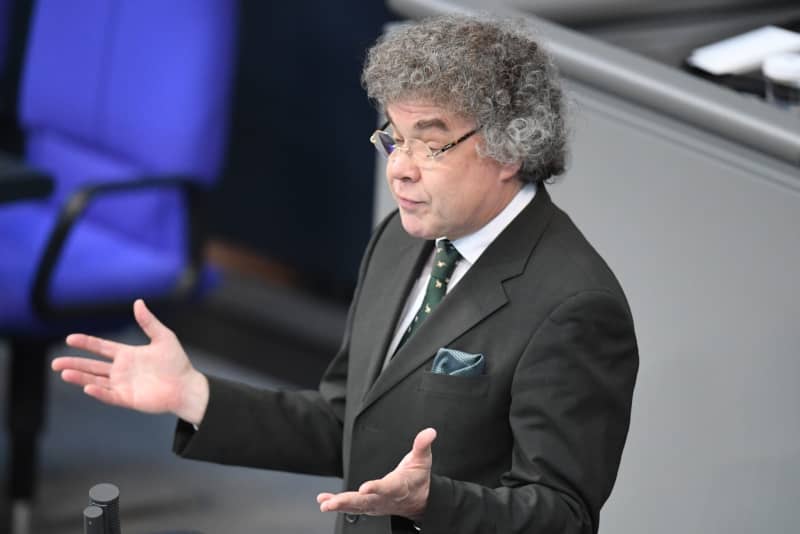Matthias Moosdorf, the foreign policy spokesman of Germany’s far-right Alternative for Germany (AfD) in the Bundestag, has recently acknowledged his position as an honorary professor at the Gnessin Russian Academy of Music in Moscow, following media inquiries. Moosdorf, a professional cellist, emphasized that his involvement with the prestigious academy is a natural extension of his career as a globally active chamber musician who has held multiple guest professorships. His teaching role is something he cherishes, he stated, as it offers a platform to contribute positively, suggesting that it allows him to connect with young Russian musicians and convey a sense of inclusion from Europe, while asserting that “music knows no ideological boundaries.”
In explaining his affiliation with the academy, Moosdorf described recent trips to Moscow where he conducted a “pro bono inaugural lecture” and aims to teach chamber music to ensembles quarterly. He firmly maintained that this engagement does not involve any formal contracts, underscoring his commitment to music as a universal medium rather than a political endeavor. This perspective is intended to highlight the importance of cultural exchange and the idea of fostering understanding through artistic collaboration, regardless of the geopolitical tensions between Germany and Russia.
However, the situation has drawn considerable scrutiny, particularly from political opponents. Konstantin von Notz, the deputy parliamentary leader of Germany’s Green party, has criticized Moosdorf’s role at the Gnessin academy, pointing out the inherent contradictions in representing German foreign policy while accepting recognition from institutions linked to the Russian government. Von Notz expressed concerns over the AfD’s connections to Moscow, questioning how credible foreign policy can be when its spokesperson is associated with an academy funded by the Russian Culture Ministry. Such remarks indicate a broader suspicion about the motivations behind the AfD’s political narrative and highlight the complexities of international relations amid ideological divides.
In a broader context, the incident reflects ongoing tensions in German politics relating to the AfD’s stance towards Russia. The far-right party has often been perceived as sympathetic to Russian interests, which has raised alarms among other political factions regarding national security and diplomatic integrity. Moosdorf’s engagement with a Russian institution serves to amplify these perceptions, drawing attention to the need for a clear distinction between cultural diplomacy and political affiliations. Critics argue that by taking on this role, Moosdorf may inadvertently legitimize the Russian regime’s values, potentially undermining the principles of democratic accountability and international solidarity that the AfD’s rivals espouse.
Furthermore, the dynamics of cultural engagement as a form of diplomacy are complex; while music can transcend borders and foster relationships, the contexts in which this occurs are crucial. Germany’s historical ties to Russia, coupled with contemporary political realities, complicate the narrative surrounding cultural exchanges. The AfD’s embrace of such initiatives may well be a strategic maneuver to reinforce their foreign policy ideals while appealing to particular voter bases that favor closer ties with Russia. This complicates the understanding of how political parties utilize cultural platforms to convey their messages and further their agendas.
Ultimately, this controversy underscores the intricate relationship between culture and politics, particularly in a multi-faceted arena like the German Bundestag. As politicians navigate their roles within party ideologies, the ramifications of their personal affiliations warrant scrutiny. Moosdorf’s case serves as a focal point for broader discussions about geopolitical allegiances and the responsibilities of elected officials in representing national interests. It remains essential for political discourse to critically assess how individual actions can impact public perception and policy, especially in a landscape marked by heightened tensions and diverging worldviews.

